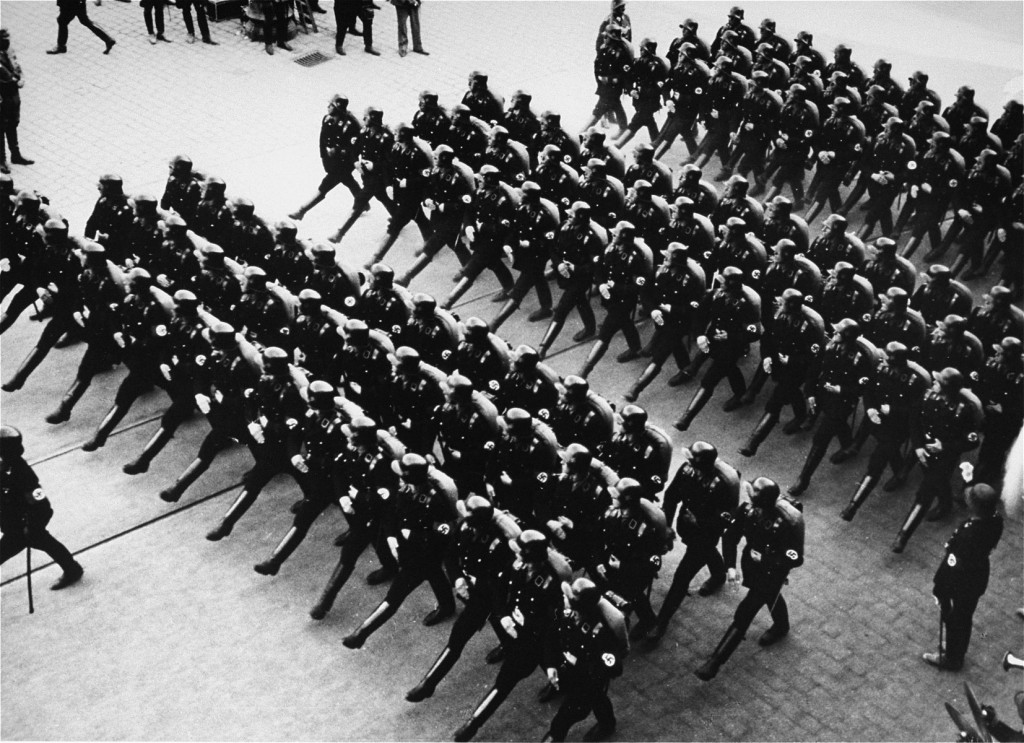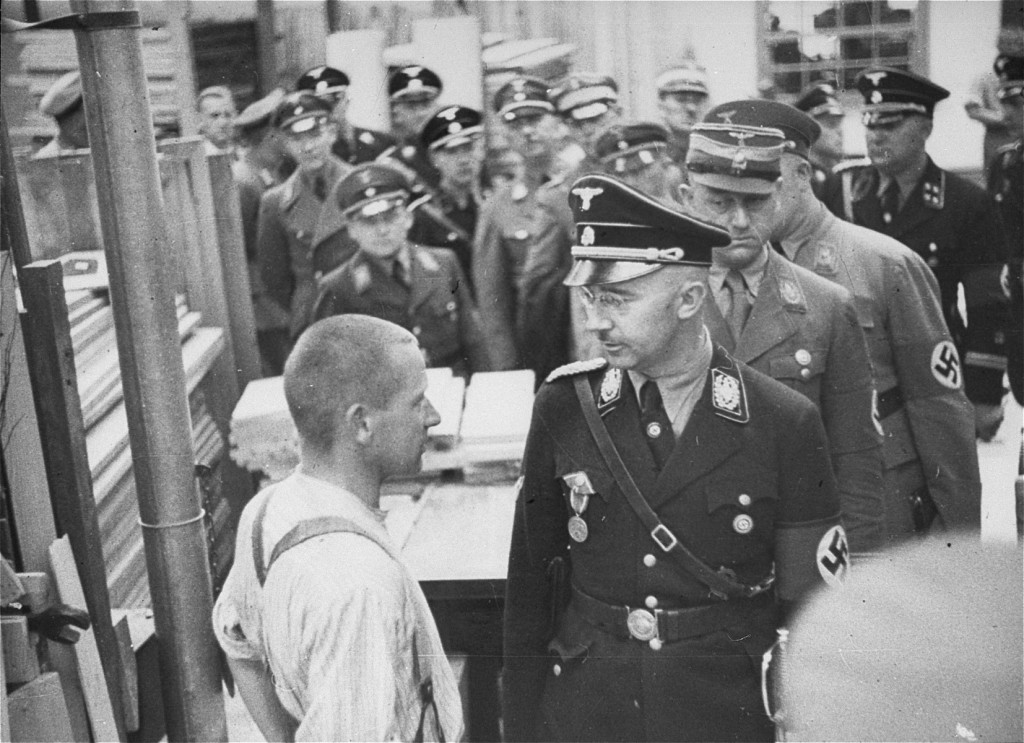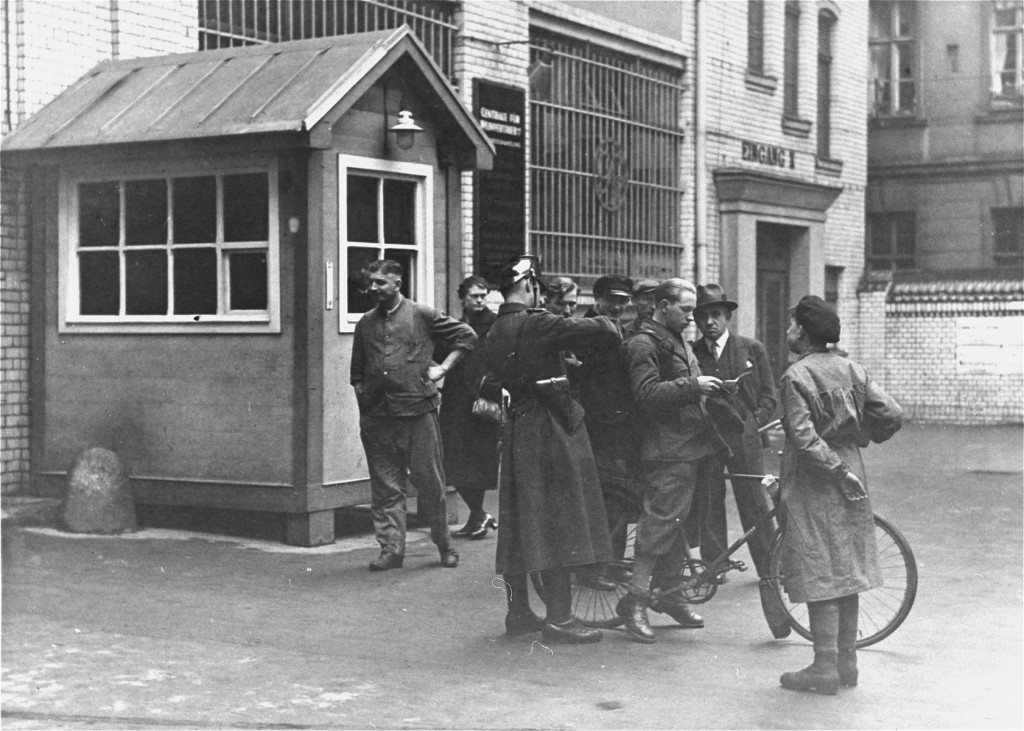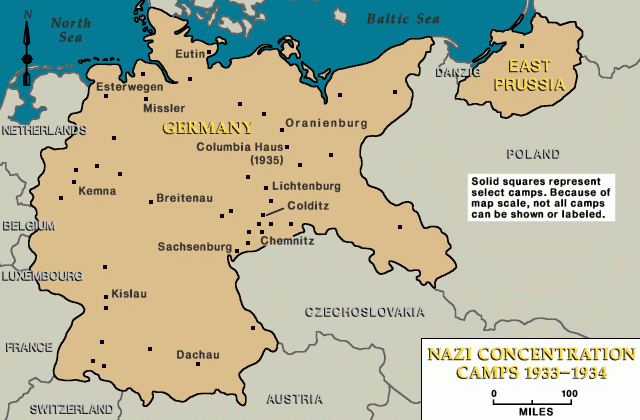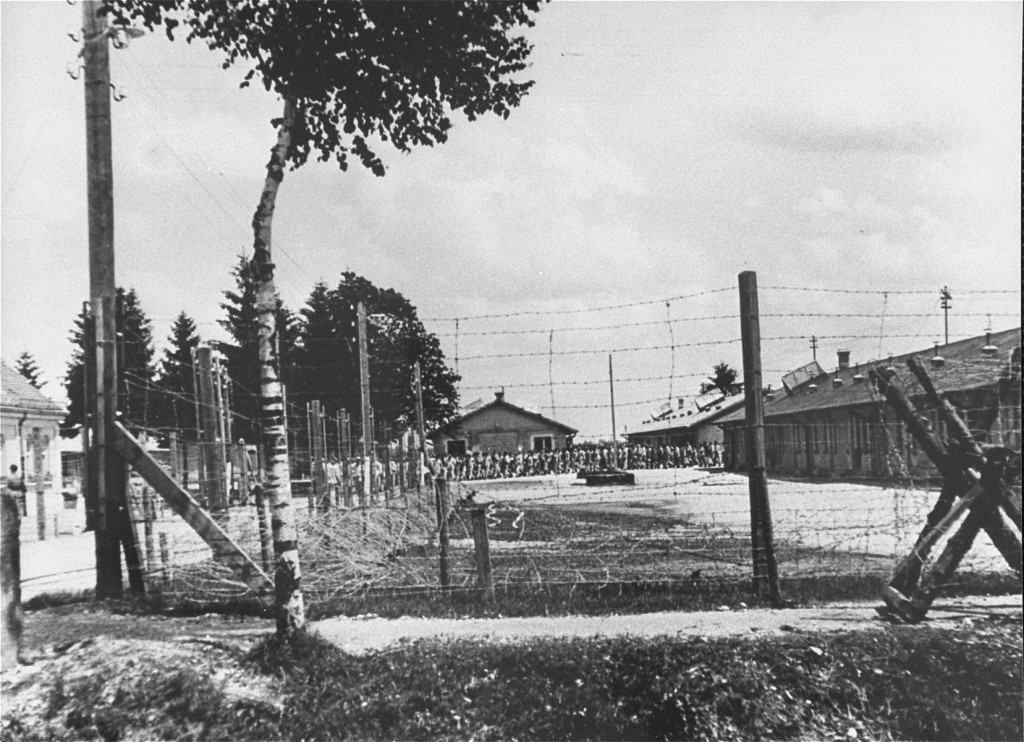
SS Police State
The SS began as an elite guard of the Nazi Party. It became known for its brutal tactics. After 1933, the SS grew increasingly powerful. It oversaw policing, intelligence, and the concentration camp system.
An important tool of Nazi terror was the Protective Squad (Schutzstaffel), or SS, which began as a special guard for Adolf Hitler and other party leaders. The black-shirted SS members formed a smaller, elite group whose members also served as auxiliary policemen and, later, as concentration camp guards. Eventually overshadowing the Storm Troopers (SA) in importance, the SS became, after 1934, the private army of the Nazi Party.
SS chief Heinrich Himmler also turned the regular (nonparty) police forces into an instrument of terror. He helped forge the powerful Secret State Police (Geheime Staatspolizei), or Gestapo. These non-uniformed police used ruthless and cruel methods throughout Germany to identify and arrest political opponents and others who refused to obey laws and policies of the Nazi regime.
An emergency decree following the burning of the Reichstag (German Parliament) in February 1933 granted the police almost unlimited power of arrest. This power meant the police could arrest and imprison potential opponents of the regime without a trial or judicial proceedings.
In the months after Hitler took power, the SA and Gestapo agents went from door to door looking for Hitler's enemies. Socialists, Communists, trade union leaders, and others who had spoken out against the Nazi Party were arrested, and some were killed. By the middle of 1933, the Nazi Party was the only political party, and nearly all organized opposition to the regime had been eliminated. Democracy was dead in Germany.
Many different groups, including the SA and SS, set up hundreds of makeshift "camps" in empty warehouses, factories, and other locations all over Germany where they held political opponents without trial and under conditions of great cruelty. One of these camps was set up on March 20, 1933, at Dachau, in an abandoned munitions factory from World War I. Located near Munich in southwestern Germany, Dachau would become the "model" concentration camp for a vast system of SS camps.
Critical Thinking Questions
Research what pressures and motivations might have influenced members of the SS.


